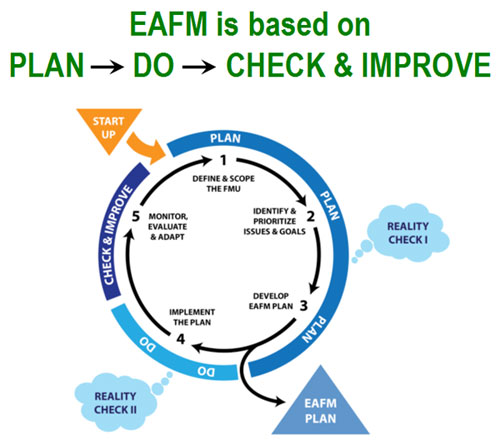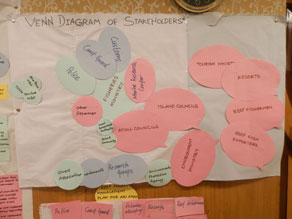New skills for more effective fisheries management
By developing professional planning, analytical and interpersonal skills needed for better structured and more informed decision-making, the Essential EAFM course will boost the capacity of institutions and their staff alike. These skills will help lead to improved preparation and implementation of fisheries management plans that are more ecologically sound and account for human needs while promoting good governance.
Essential EAFM is designed to be delivered in a highly interactive manner, featuring numerous activities to fully engage participants. During the course, trainees will put new skills to practice by developing a management plan for a fishery they are connected with.
By the end of the course trainees will have a firm understanding of how and why EAFM can be used to sustainably manage fisheries. Importantly, they will also have hands-on experience of the steps needed to develop an EAFM plan.
By the end of the course participants will:
- recognize the multiple benefits ecosystems provide to human societies
- realize that addressing the many threats and issues facing capture fisheries and coastal ecosystems requires a new approach
- understand the principles of EAFM and its link to major elements of the Code of Conduct for Responsible Fisheries
- understand the basic concepts of co-management
include how to:
- identify issues and threats faced by specific fisheries and associated ecosystems
- initiate the EAFM process and co-management
- set up teams and consultative groups
- identify, understand and engage stakeholders
- prioritize issues through risk assessment
- develop goals for an EAFM plan
- use facilitation skills with co-management partners in focus group discussions (FGDs)
- utilise a range of conflict management techniques
- develop operational objectives, indicators and benchmarks
- agree management actions and how stakeholders will comply with these
- include financing mechanisms in plans
- develop an implementation work plan
- develop a communication strategy
- check on the status of EAFM plan implementation
- monitor performance of management actions
- evaluate monitoring information and report on performance
For more information on course content and specific learning objectives see Essential EAFM course content




